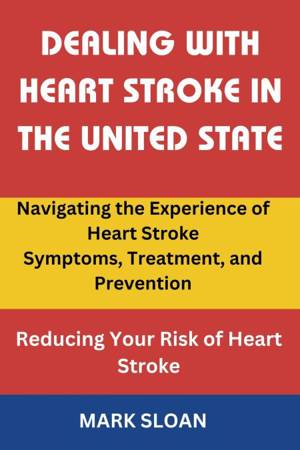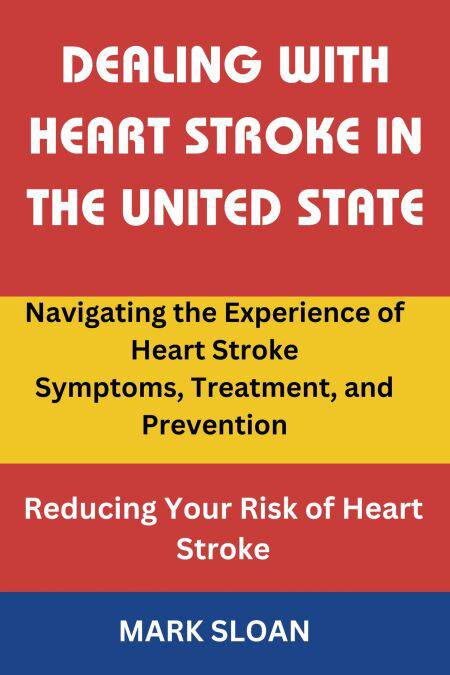
- Afhalen na 1 uur in een winkel met voorraad
- Gratis thuislevering in België
- Ruim aanbod met 7 miljoen producten
- Afhalen na 1 uur in een winkel met voorraad
- Gratis thuislevering in België
- Ruim aanbod met 7 miljoen producten
Omschrijving
Heart stroke, also known as myocardial infarction or heart attack, is a medical emergency that occurs when blood flow to the heart is blocked, causing damage or death of heart muscle tissue. It is a common cardiovascular disease that affects millions of individuals in the United States each year.
Heart stroke is typically caused by a buildup of plaque in the arteries that supply blood to the heart. This buildup can cause a clot to form, blocking blood flow to the heart muscle. Other risk factors for heart stroke include lifestyle choices such as smoking, poor diet, lack of exercise, and chronic conditions such as high blood pressure, high cholesterol, and diabetes.
Symptoms of heart stroke may include chest pain or discomfort, shortness of breath, nausea, lightheadedness, or discomfort in other areas of the upper body such as the arms, back, neck, or jaw. It is important to seek immediate medical attention if any of these symptoms occur.
Treatment options for heart stroke may include medications such as blood thinners or nitroglycerin, angioplasty and stenting, coronary artery bypass surgery, lifestyle changes, and cardiac rehabilitation.
Prevention strategies for heart stroke include quitting smoking, maintaining a healthy weight, eating a healthy diet, exercising regularly, managing chronic conditions, reducing stress, and limiting alcohol consumption. By making healthy choices and managing risk factors, individuals can reduce their risk of heart stroke and improve their overall health.
In conclusion, heart stroke is a serious medical emergency that requires prompt treatment and prevention strategies to reduce the risk of future events. It is important to prioritize heart health and make healthy choices to prevent heart stroke and other cardiovascular diseases.
Specificaties
Betrokkenen
- Auteur(s):
- Uitgeverij:
Inhoud
- Taal:
- Engels
Eigenschappen
- Productcode (EAN):
- 9798223902997
- Verschijningsdatum:
- 14/04/2023
- Uitvoering:
- E-book
- Formaat:
- ePub

Alleen bij Standaard Boekhandel
Beoordelingen
We publiceren alleen reviews die voldoen aan de voorwaarden voor reviews. Bekijk onze voorwaarden voor reviews.












